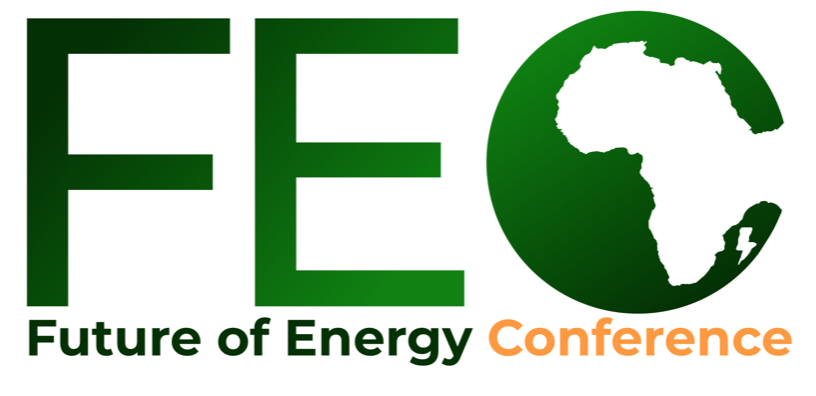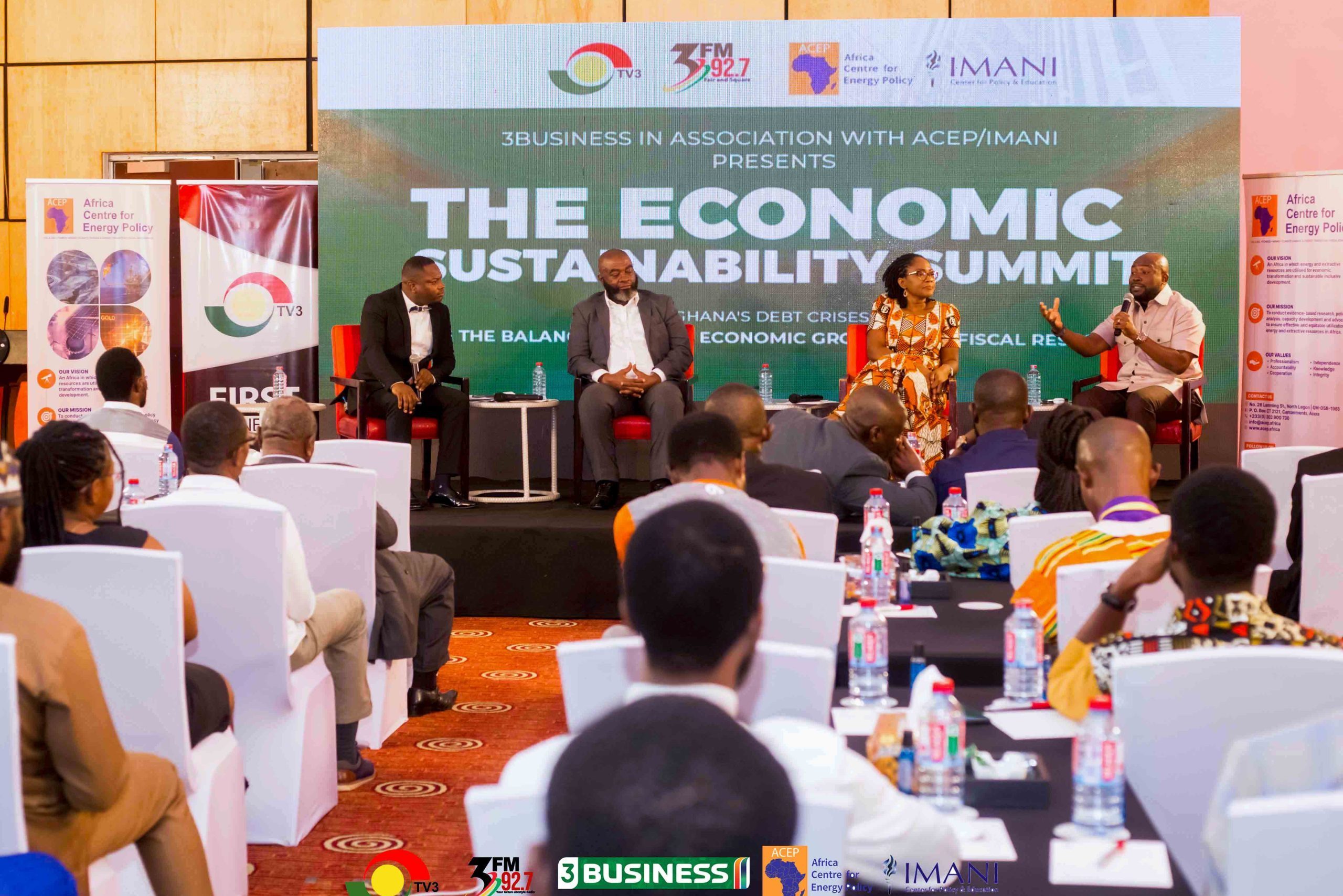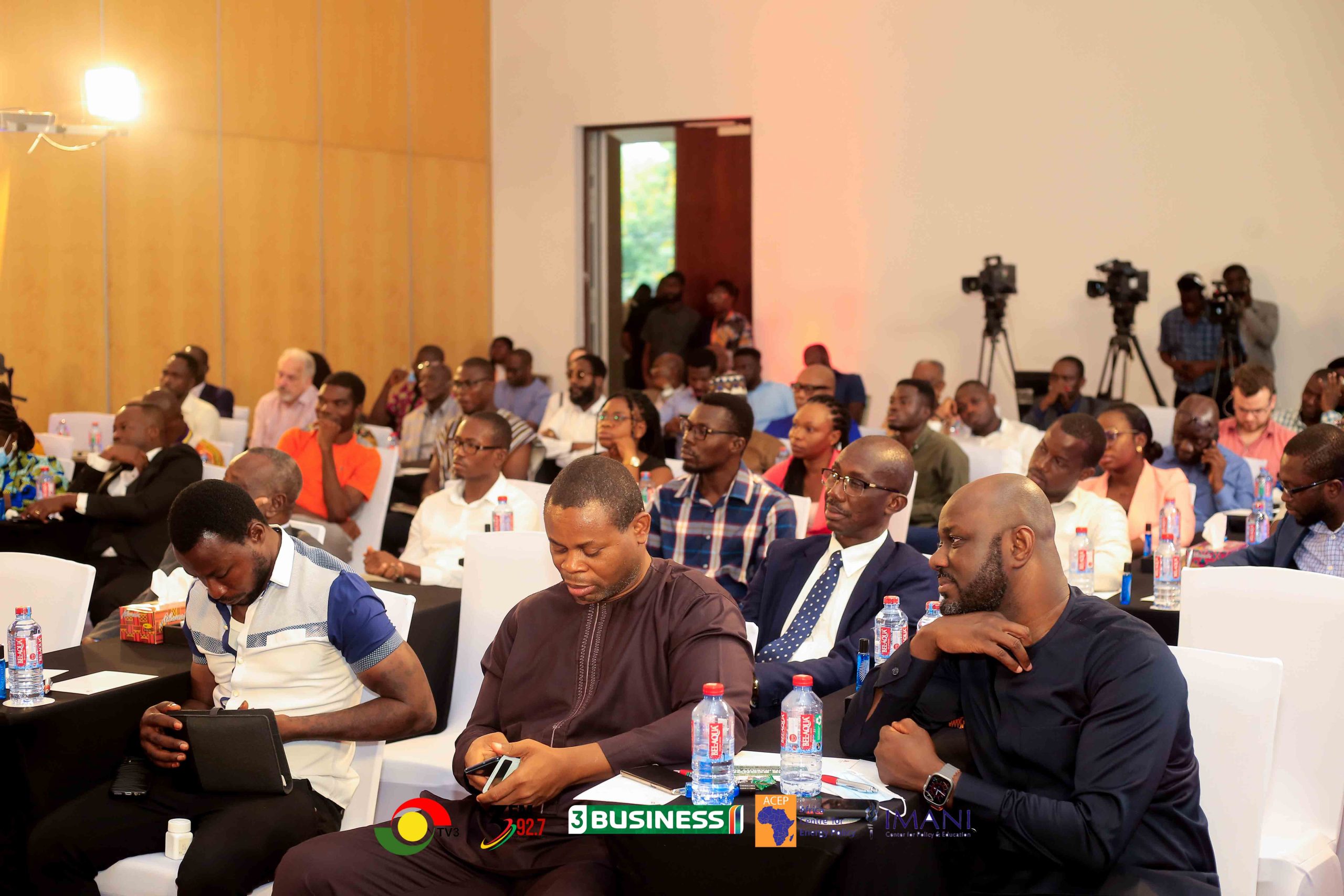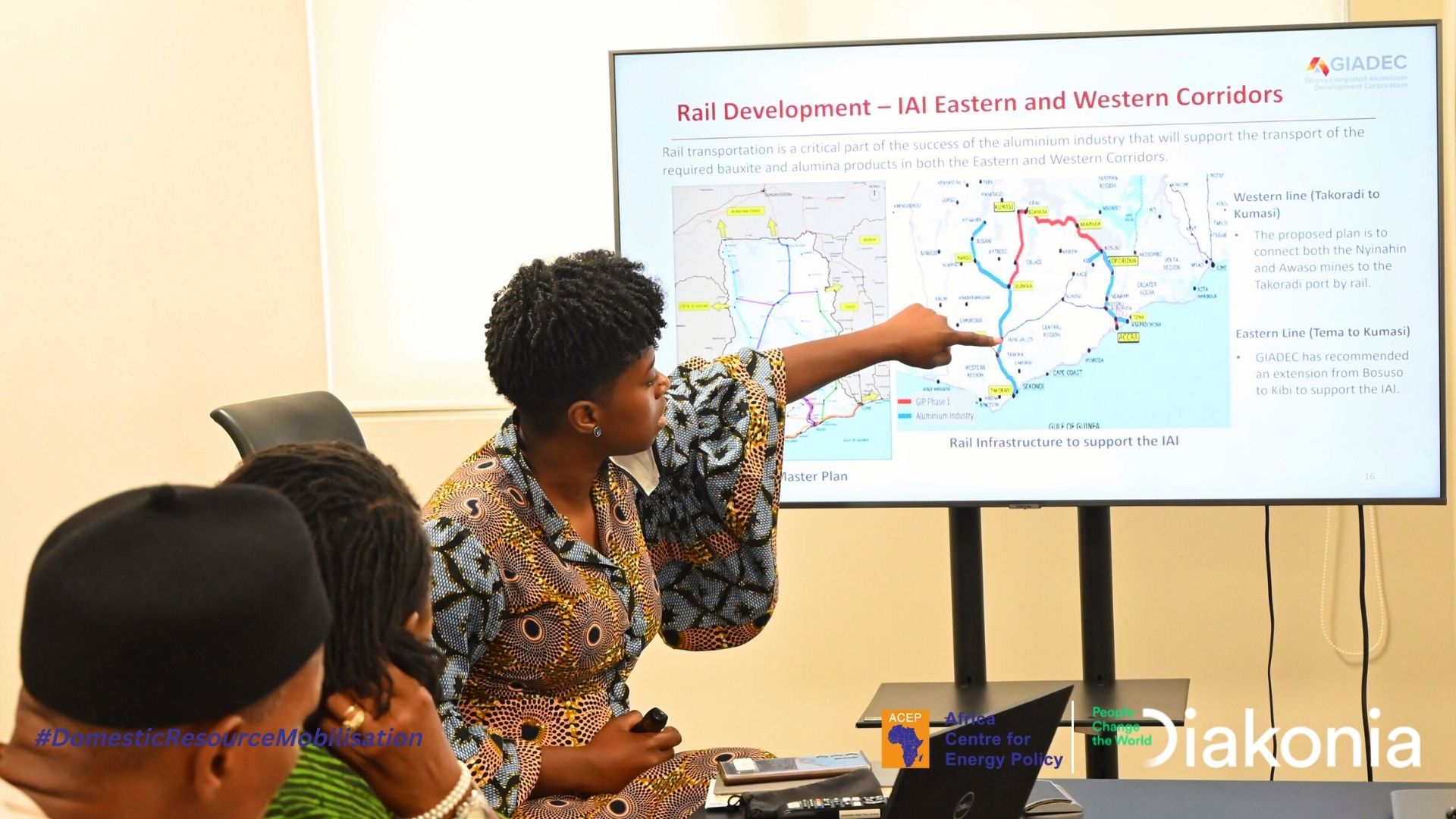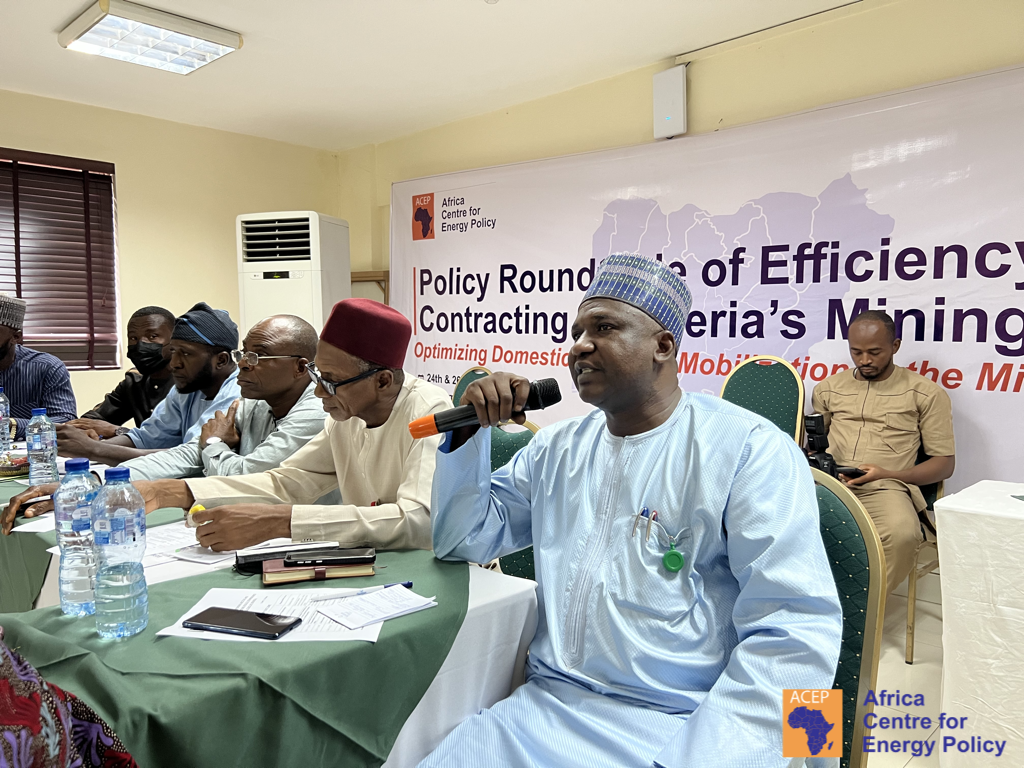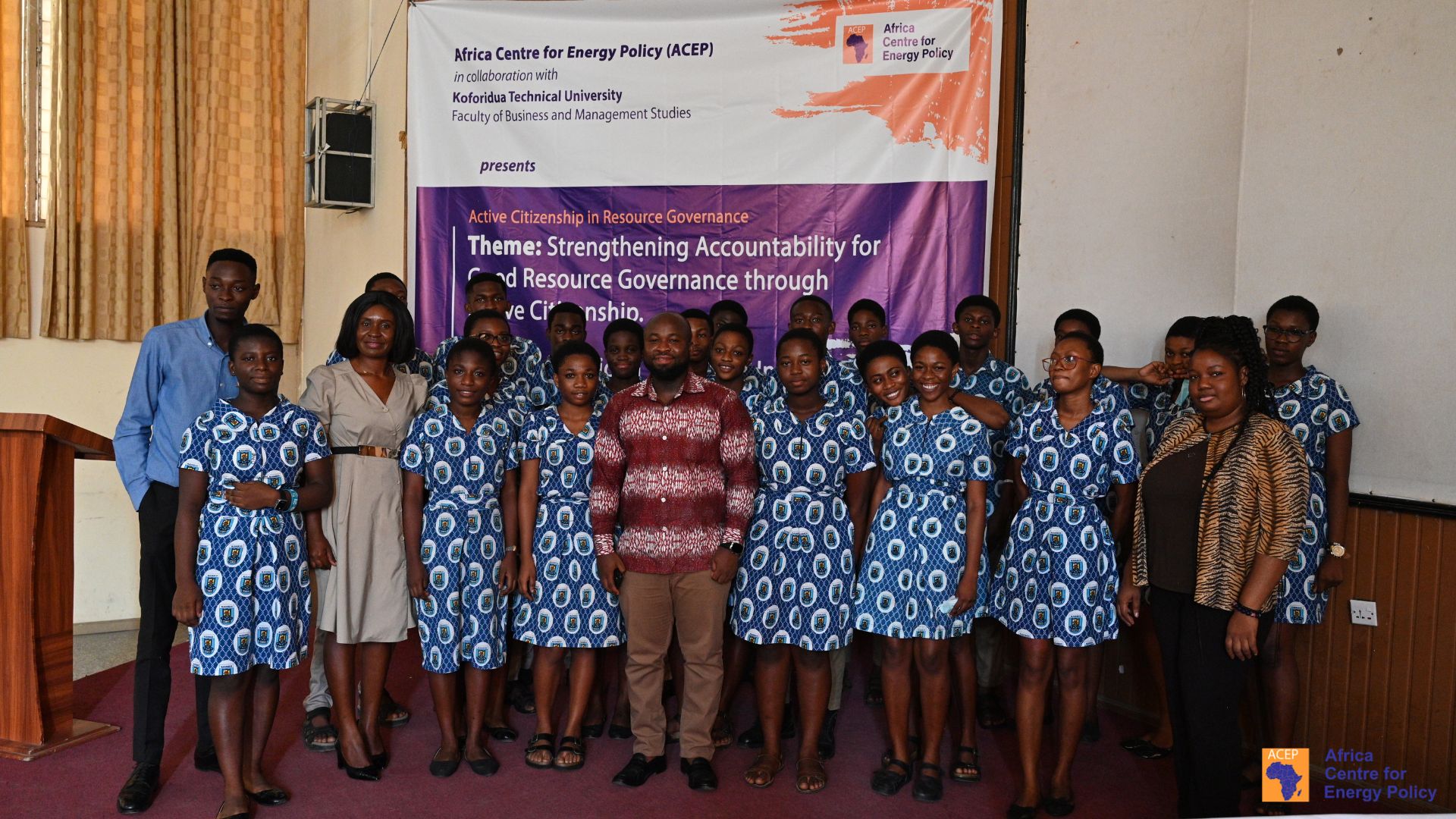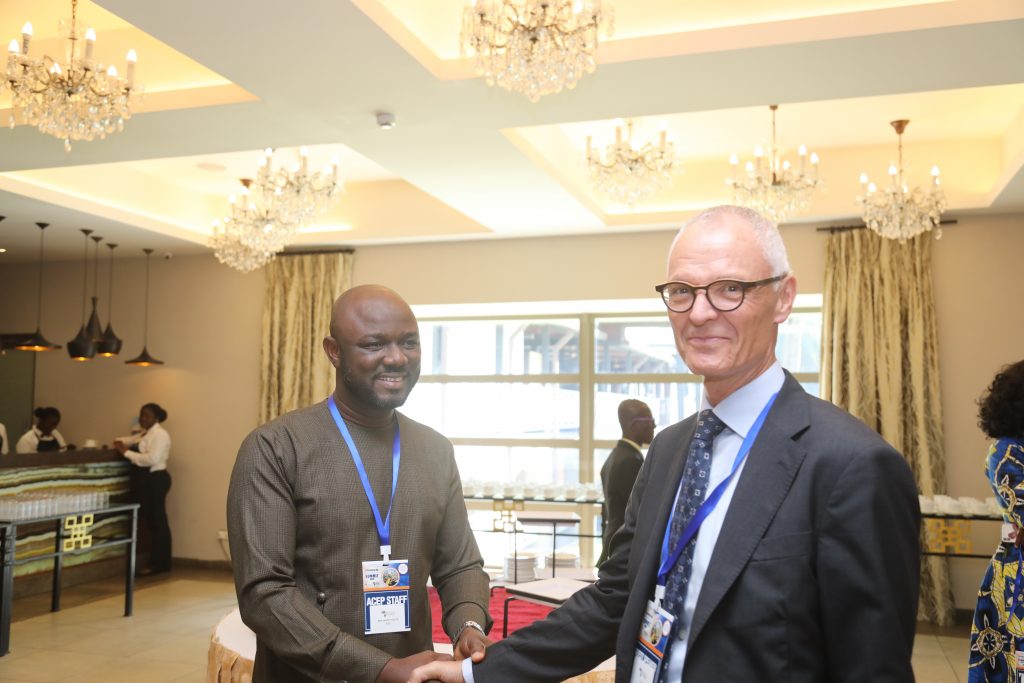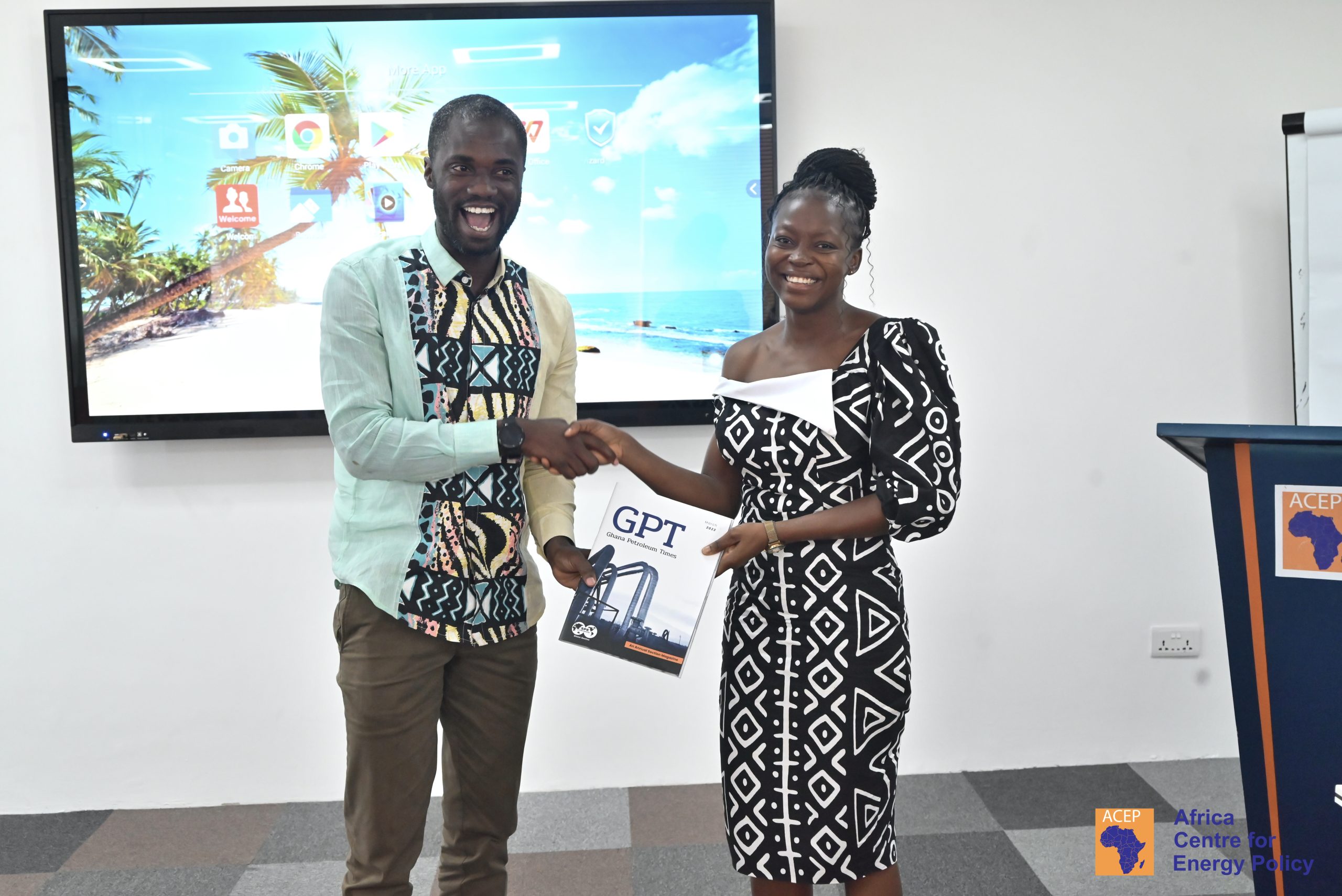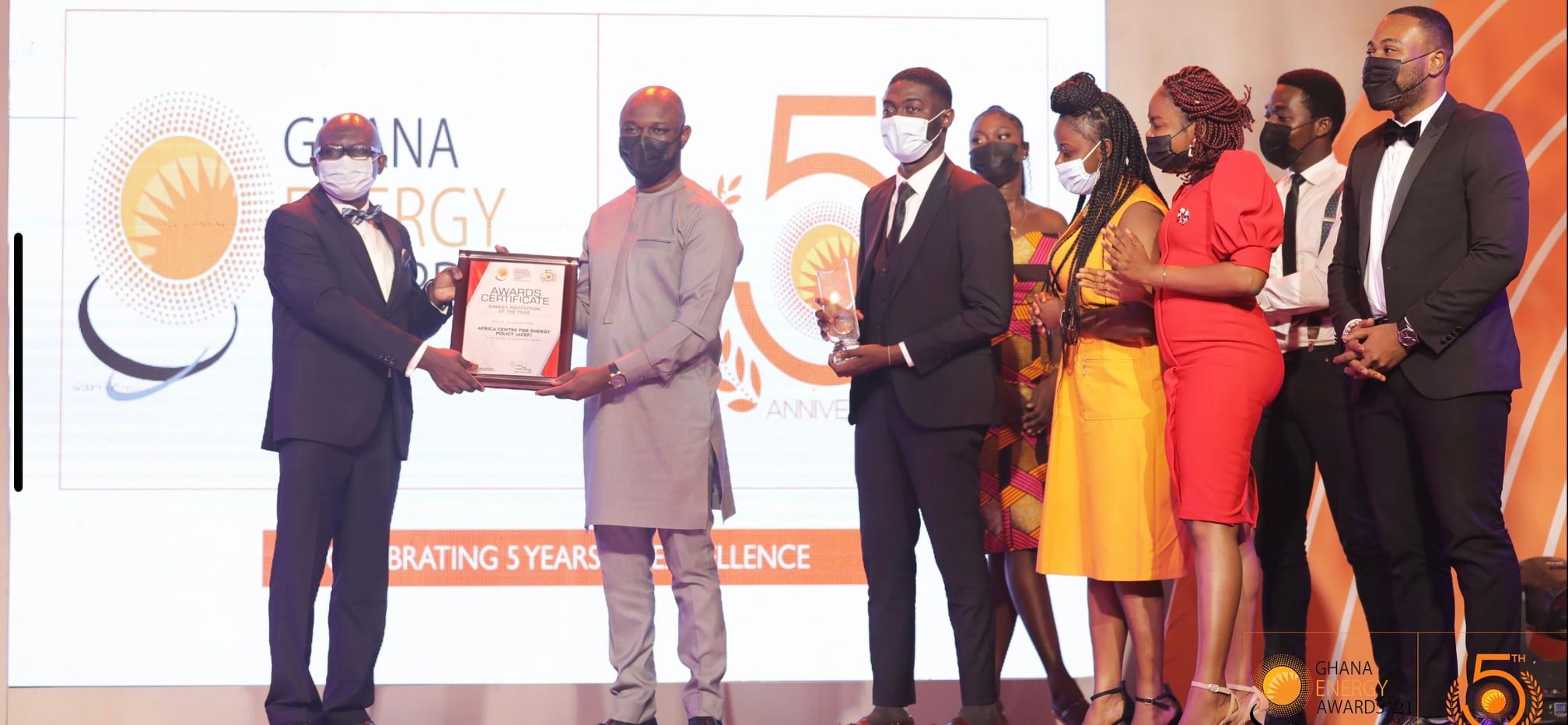
The Future of Energy Conference
The Future of Energy Conference (FEC) is an annual platform to drive stakeholder collaboration towards an inclusive and sustainable energy future for Africa. It critically explores strategies to harness the untapped potential within the energy transition and the continent’s natural resources to address energy poverty and drive economic transformation.
The 2024 edition, themed “Harnessing Africa’s Resource Wealth: Fuelling Innovation for Equitable Energy Access,” gathered over 1000 in-person and online participants worldwide. The discussions generated innovative approaches fundamental to advancing a sustainable and equitable energy future for Africa. Key takeaways included the urgent need for value addition in critical mineral beneficiation to maximize clean energy benefits and the imperative to integrate energy poverty reduction with low-carbon transition strategies. However, speakers highlighted persistent funding gap remains a critical obstacle. To address this challenge, the Africa Centre for Energy Policy (ACEP) and its partners are convening the 2025 Future of Energy Conference to identify innovative funding mechanisms and strategies essential to mobilising critical investments required to advance sustainable energy initiatives for alleviating Africa’s energy poverty.
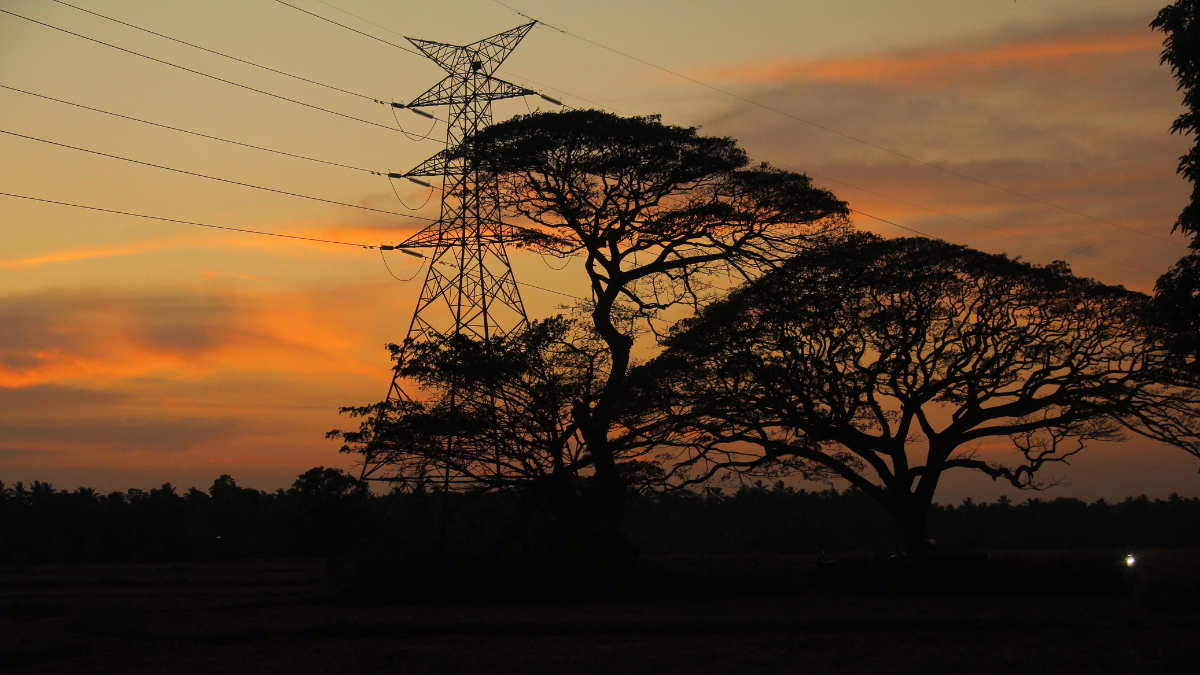
FEC 2025 Theme
Financing Africa’s Energy Future: Unlocking Investments for Energy Access and Economic Transformation
The global push towards net-zero emissions by 2050 has intensified the urgency to transition to cleaner energy sources. However, Africa continues to grapple with energy poverty. Over 600 million people lack access to electricity, and 1 billion rely on traditional biomass for cooking, perpetuating cycles of poverty and environmental degradation. This underscores the need for inclusive and sustainable energy solutions. For Africa, this transition presents a dual opportunity: contributing to global climate goals while addressing the continent’s pressing energy poverty.
Africa’s rich mineral reserves position it as a key player in the global energy transition, with significant deposits of critical minerals essential for clean energy technologies. For example, the Democratic Republic of Congo (DRC) supplies over 70% of the world’s cobalt demand which is vital for electric vehicle batteries. South Africa contributes nearly 75% of global platinum production, essential for hydrogen fuel cells. Mozambique and Madagascar are major graphite suppliers, whereas Zambia and the DRC hold significant copper reserves critical for electricity transmission and renewable energy systems. These resources are pivotal to meeting the Paris Agreement’s goals, which require a fourfold increase in demand for critical minerals by 2040 according to the International Energy Agency. This strategically positions Africa to influence global energy transition pathways and generate revenue for socio-economic development.
Despite its resource wealth, Africa faces persistent financing gaps that hinder progress. Annual energy investments in the region remain significantly below the levels needed to achieve universal energy access. For instance, a study by IRENA found that Africa attracted only 2% of global RE investments between 2000 and 2020, with per capita investment at USD 13 between 2020 and 2023 – far below the global average of USD 176. Traditional funding mechanisms and overreliance on donor support have proven insufficient, necessitating innovative approaches that combine public, private, and multilateral resources to de-risk energy investments and mobilise capital for clean energy projects.
Beyond financing constraints, limited regional integration remains a critical barrier to Africa’s energy transition and the shift from raw material exports to high-value in-country production. While the African Continental Free Trade Area (AfCFTA) presents an opportunity to develop regional value chains, it has yet to be fully leveraged in driving intra-African trade and local beneficiation in critical mineral industries. For example, decentralized renewable energy systems, like solar mini-grids, can deliver affordable electricity to off-grid communities, while ethanol-based clean cooking solutions reduce reliance on biomass. While these strategies are widely recognized, weak cross-border cooperation, fragmented policies and systemic financing gaps impede progress toward developing regional processing and manufacturing hubs to maximize the value from its resource wealth as well as enhance Africa’s competitiveness in clean energy technologies.
These realities form the foundation upon which the 2025 Future of Energy Conference is built. As stakeholders across the continent and beyond gather once again, the conference seeks to galvanize efforts around bold, innovative, and actionable strategies to drive Africa’s energy future. Below are the key objectives and components shaping this year’s conference.
The primary objective of the Future of Energy Conference 2025 is to examine Africa’s financing needs and strategic pathways for achieving a just energy transition. The Conference seeks to provide a platform for stakeholders to:
- Identify actionable solutions to energy poverty.
- Strengthen regional integration and cross-border partnerships to build integrated clean energy value chains.
- Explore innovative resource mobilisation and investment strategies to reduce energy poverty.
- Drive innovation for sustainable energy solutions.
- Enhanced understanding of financing mechanisms for Africa’s energy transition.
- Identification of innovative strategies to alleviate energy poverty.
- Strengthened partnerships among governments, businesses, and civil society.
- Contribution to global discussions on sustainable energy solutions and Africa’s role in the energy transition.
Diversifying Investment Options for Africa’s Energy Future
Africa’s energy sector faces a persistent financing gap, limiting progress toward universal energy access and a just transition. The AfDB and World Bank’s Mission 300, which aims to connect 300 million Africans to electricity by 2030, underscores the urgency of scaling up financing solutions tailored to Africa’s unique energy needs. While public funding remains vital, unlocking private sector investments, blended finance, climate funds, and innovative capital markets is critical to mobilizing resources at scale. However, access to these financing streams remains a challenge due to high investment risks, inadequate policy frameworks, and limited financial instruments tailored to Africa’s unique context. This session will explore how Africa can diversify and sustain financing options to drive energy access and economic transformation. Panellists will discuss the role of the bonds market, carbon trading, sovereign guarantees, de-risking mechanisms, and green financing in accelerating investment flows. Additionally, the session will examine the institutional and policy safeguards needed to build investor confidence, ensure accountability, and maximize the impact of these investments.
Addressing project bankability challenges in Africa’s energy future
One of the biggest hurdles to financing sustainable energy in Africa is the perceived lack of bankable projects. While risks like policy uncertainty and weak credit structures are well recognized, the concept of project bankability remains elusive, and rarely dissected in a way that provides actionable insights for developers, policymakers, and investors. This theme focuses on demystifying project bankability, outlining its core elements and providing practical solutions to mitigate risks, enhance project structuring, and attract investment for both large-scale and decentralized energy projects. It will also examine strategies for collaboration among governments, developers, and financiers to de-risk energy investments and ensure the scalability and long-term viability of clean energy projects across Africa.
Building Regional Value Chains for Clean Energy: Collaboration for a Sustainable Future
The growing urgency for developing regional value chain for clean energy technologies in Africa has been identified as essential for Africa’s energy transition, economic growth, and industrialization. However, weak infrastructure, limited cross-border collaboration and fragmented policies continue to hinder efforts to localize the manufacturing and processing of critical components like solar panels, battery storage, and wind turbines. This thematic area explores strategic partnerships and policy frameworks needed to develop an integrated clean energy value chain, leveraging initiatives such as the Africa Continental Free Trade Area (AfCFTA), the ECOWAS Trade Liberalisation Scheme (ETLS) and the Common Market for East and Southern Africa (COMESA). Discussions will focus on trade facilitation, policy incentives, and capacity-building initiatives that can drive local production, strengthen regional supply chains, and position Africa as a competitive player in the global clean energy market.
Scaling Energy Access: Unlocking the Potential of Mini-Grids and Stand-Alone Systems for Universal Electrification
Mini-grids and stand-alone systems are critical to expanding electricity access in Africa, particularly in rural and under-served areas where traditional grid expansion is economically unfeasible. However, their full potential is often hindered by key challenges, including low consumer willingness to pay, regulatory hurdles in tariff setting, and the unproductive use of power that limits commercial viability. This thematic area examines strategies to overcome these barriers and ensure that decentralized energy solutions contribute meaningfully to universal electrification and address energy equity challenges. Discussions will focus on creating enabling regulatory environments, designing cost-reflective yet affordable tariffs, and promoting productive energy use to drive economic growth. The session will also highlight successful models that integrate mini-grids with national electrification plans, foster local entrepreneurship, and enhance the long-term sustainability of off-grid energy solutions.
Scaling Investment in Research and Innovation for Africa’s Energy Future
Limited funding, weak institutional collaboration, and inadequate policy support hinder effective R&D despite its crucial role in providing innovative and sustainable energy solutions. This thematic focus explores strategies to scale up investments in R&D for Africa’s energy sector, focusing on clean energy innovations, grid modernization, and locally driven technological solutions. Discussions will highlight the role of governments, private sector players, and development partners in fostering a robust R&D ecosystem that accelerates Africa’s energy transition and strengthens its position in the global clean energy economy.
Commercializing Methane Emissions: Turning Waste into Economic and Energy Opportunities
Methane emissions from oil and gas operations, agriculture, and waste management represent both an environmental challenge and an untapped economic opportunity. Rather than being flared or released into the atmosphere, methane can be captured and commercialized for energy generation, industrial use, and as a feedstock for clean fuels like hydrogen. This session will explore innovative business models, technologies, and policy frameworks that enable the monetization of methane emissions. Discussions will also focus on investment opportunities, carbon credit mechanisms, and regulatory incentives that can drive methane capture projects while contributing to emissions reduction targets and sustainable economic growth.
Innovation Challenge
Step into the Innovation Challenge, a dynamic space at the Future of Energy Conference 2025, designed to connect Africa’s brightest minds with key stakeholders. This platform invites entrepreneurs, researchers, and industry professionals to pitch and showcase groundbreaking energy solutions – from renewable technologies and smart grids to innovative financing models. Over two days, finalists will present their ideas to expert judges and a diverse audience of policymakers, investors, and industry leaders. The challenge aims to identify and support transformative innovations that enhance energy access, reliability, efficiency, and sustainability across Africa. Winner(s) will receive recognition, mentorship, and potential funding support to bring their solutions to market. Join us to witness the future of energy innovation and be part of the collaborative movement driving Africa’s energy transformation.
The Innovation & Investment Arena
Experience the future of energy at our interactive exhibition space. The innovation and investment arena creates the platform to connect key stakeholders – investors, policymakers, and innovators – showcasing scalable clean energy technologies, emerging investment opportunities, and transformative business models. The platform will facilitate knowledge exchange and address information asymmetry among key stakeholders. The arena will empower attendees with critical insights, foster strategic partnerships, and drive informed decision-making to unlock scalable and sustainable energy investments across Africa.
How the Conference Will Unfold
FEC 2025 is structured around three broad categories: plenary sessions, side events, and exhibitions over two days. The plenary sessions are interspersed with keynote speeches, paper presentations, expert submissions, and panel sessions on issues focused on the theme. Further, there are parallel side events after the opening plenary by partners and other like-minded institutions across various sectors, including governments, the private sector, academia, CSOs, multilateral institutions etc. Topical discussions at these events would stem from the varying sub-themes of the Conference that contribute to achieving the overall objective. Each day will be crowned with the innovation challenge where contestants pitch their innovative energy solutions. The winner(s) would be announced at the closing ceremony of the Conference on Day 2. The Conference also provides a platform for the exhibitions of innovative energy solutions and products from startups, small and medium-scale businesses, academia, and other research institutions across the value chain. Dubbed “The Innovation and Investment Arena”, it creates the platform to bring together innovators, research and development, investors, and industry leaders to interface and foster partnerships. The objective is to nurture interests, shed light on innovative solutions and scale up investments in Africa’s R&D to generate home-grown energy solutions.
